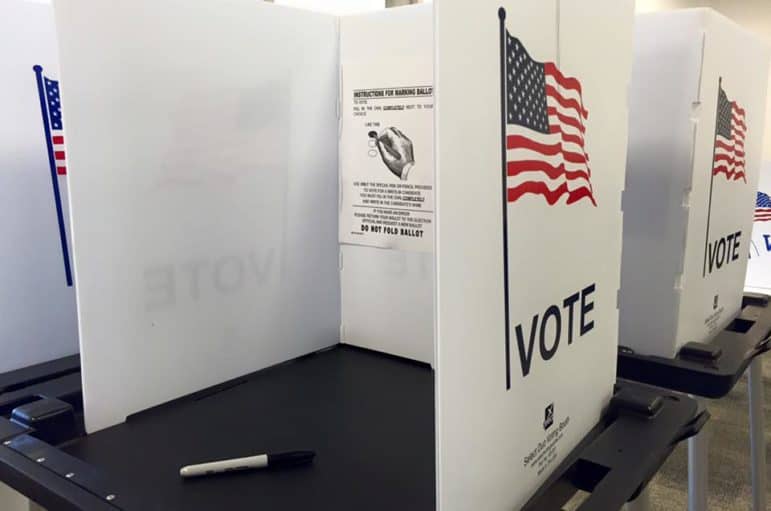
Heath Haussamen / NMPolitics.net
A voting kiosk
If you wanted to run for governor as an independent last year, you would have needed to get more than 15,000 registered voters to sign a petition to get your name on the ballot.
It was a nearly impossible goal.
New Mexico law sets a high bar for independent candidates to even qualify for an election.
A new state legislator wants to make it easier for independents to run for office by drastically slashing the number of signatures they need to file with election officials.
While the Legislature has consistently shot down past proposals to loosen up New Mexico’s notoriously tight ballot access laws, one top Democrat appears to be on board with the idea.
“I think it’s really good,” House Speaker Brian Egolf, D-Santa Fe, told reporters Tuesday after putting the bill on a sort of fast track through the usual committee process.
Current law requires independent candidates to get signatures from at least 1 percent of the number of voters who cast ballots for governor in their district during the last gubernatorial election.
That often means independent candidates must get many times the number of signatures that candidates from the major parties have to collect.
Of course, party candidates must also go through a nominating process. So, defenders of this system say, the lower bar only makes sense.
But critics contend the current system makes it nearly impossible to run as an independent.
State Rep. Bill Pratt, D-Albuquerque, knows that firsthand. The retired doctor ran for his state House seat several years ago when no one else would challenge the incumbent, then-Rep. Larry Larrañaga. But Pratt had to collect hundreds of signatures just to get on the ballot. He ran last year as a Democrat and needed far fewer, eking out a victory in his northeast Albuquerque district by fewer than 200 votes.
So, under Pratt’s House Bill 468, the number of required signatures independent and minor party candidates must collect to get on the ballot would be set in law at a flat number.
For example, an independent or minor party candidate for statewide office would need 1,000 signatures. An independent or minor party candidate would need 500 signatures to run for the U.S. House of Representatives or 100 to run for the state Legislature.
Pratt argued that easier ballot access would encourage more competition and improve the public’s faith in the electoral process.
After all, nearly half of the 70 seats in the state House of Representatives were uncontested in the general election last year.
“Easier ballot access will do a bit to improve public perception of the electoral process and more trust,” Pratt said.